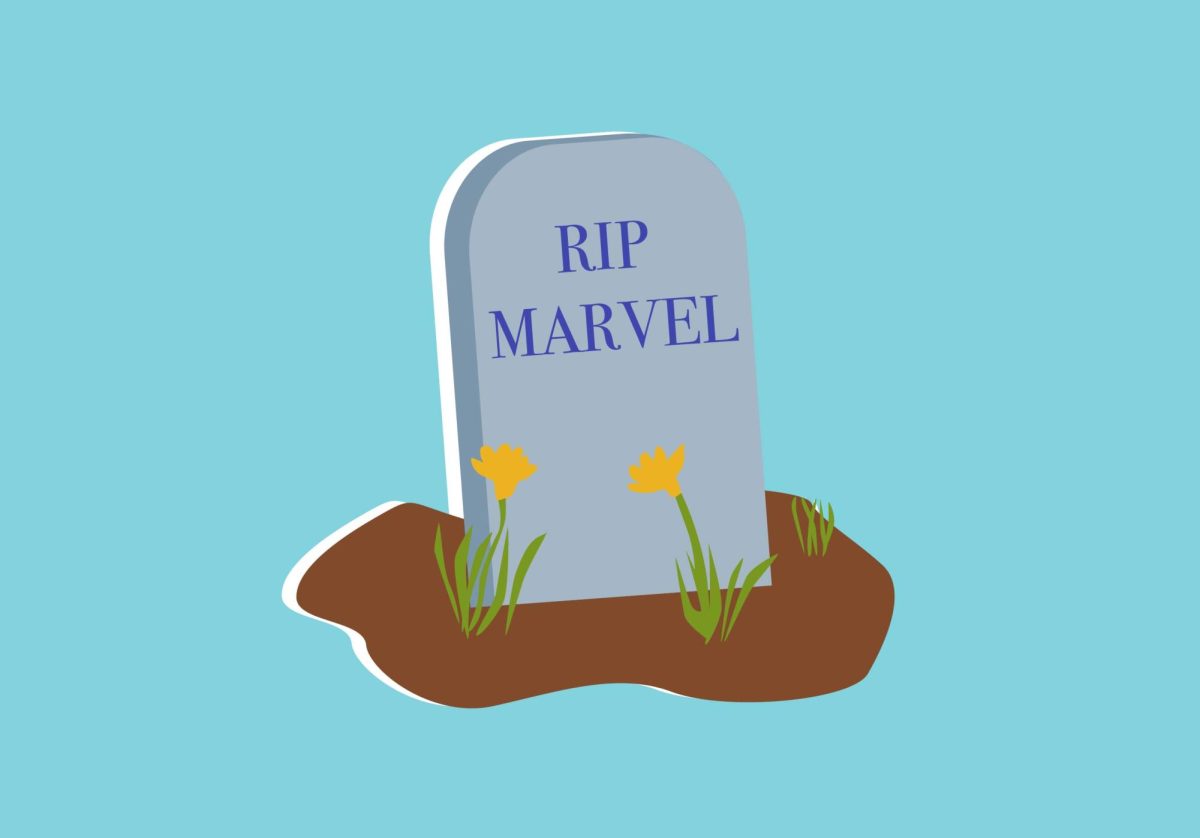Marvel released its newest movie “The Marvels,” a part of Phase Five of the Marvel Cinematic Universe (MCU), on Nov. 10.
Along with this new addition to the MCU, Marvel also released its third Ant-Man movie, “Ant-Man and the Wasp: Quantumania,” on Feb. 17. Another MCU movie trilogy concluded this year with “Guardians of the Galaxy Vol. 3,” released May 5.
Many media outlets that covered box office numbers of “The Marvels” have described the figures as disappointing. “The Marvels” brought in only $47 million in its opening weekend, the lowest box office opening for an MCU movie. IMDb lists the Marvel movies from lowest to highest box office openings, with the lowest before “The Marvels” being “The Incredible Hulk,” released in 2008 at $55.4 million domestically.
This could represent a declining interest in the MCU. When speaking with Andy Windels, theater manager for the Main Cinema in Minneapolis, he brought up the amount of content Marvel has been putting out over the last three years.
Windels spoke from personal experience and said after “Avengers: Endgame” came out, there was so much Marvel content being released that it became overwhelming for him.
“They [Marvel movies] stopped feeling satisfying,” Windels said.
“Avengers: Endgame” resolved the plots of many characters people had grown to love over the last decade of MCU movies. To finish off Phase Three of the MCU, “Spider-Man: Far From Home” was released three months later on July 2, 2019.
Claudia Strollo, a first-year student at the University of Minnesota and a big Marvel fan, said she has mixed feelings about the next phases of Marvel.
“It feels like the higher execs are focusing on mass production rather than telling a story that fans will want to get heavily invested in,” Strollo said in an email to the Minnesota Daily.
About two years after “Avengers: Endgame” was released, Marvel Studios started releasing “WandaVision” on Jan. 15, 2021, ending the show on March 5, 2021. Marvel Studios released and completed the first season of five television series.
While beneficial to keeping the movie franchise relevant, there is a chance all of this content started to make the MCU lose its “wow factor” amongst its audience.
“That definitely made it, I think, stop feeling special,” Windels said.
He added that it took a lot of effort to try to keep up with the content. Eventually, Windels became less and less interested in the next new pieces of content from the MCU because he missed so much from the television series and Marvel Studios seems so connected to the idea that most of their content has to be related to each other.
“It was like an all-or-nothing [thing], and I think that also exhausted some people,” Windels said.
Strollo doesn’t believe missing a movie or a TV show will impact a person’s understanding of the MCU but understands how it can be difficult for people who are not deeply involved in the MCU timeline to keep up.
Kathryn Kuebler, another first-year student at the University and an avid Marvel fan, has a more positive view of the trajectory of Marvel. She believes Marvel will impact generations and have a similar path to the Star Wars franchise.
“I don’t think the franchise is dying, it’s just transitioning away from the original storyline that many people fell in love with,” Kuebler wrote in an email to the Daily.
Marvel Studios may be trying to regain their footing after a major conclusion of their first decade-long MCU storyline as they announce more content set to come out in 2024, like “Deadpool 3” and “Agatha: Darkhold Diaries.”
Marvel seems to want to continue telling interconnected stories, but how they plan to balance putting out a lot of content while maintaining their “wow factor” amongst audiences is yet to be understood.








